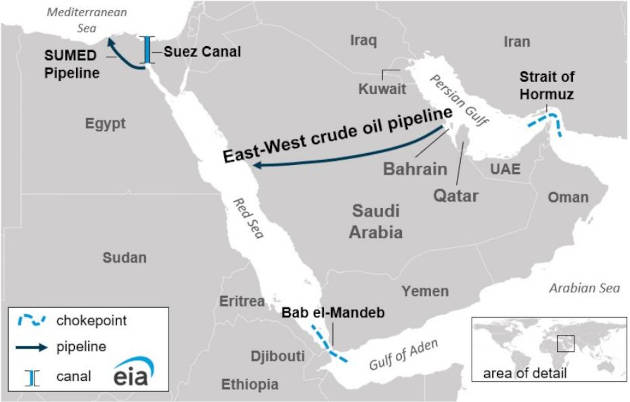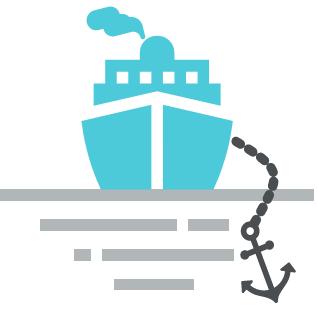Houthi Attacks on Bab el-Mandeb Strait Disrupt Oil Flow, Forcing Global Trade Reroutes
Crude oil and oil products passing through the Bab el-Mandeb Strait have seen a dramatic decrease of over 50 % during the first eight months of 2024, according to the US Energy Information Administration. This significant drop underscores the impact of Houthi militia attacks on global maritime trade, particularly in one of the world’s most critical shipping routes. The Bab el-Mandeb Strait, located at the southern entrance of the Red Sea, typically handles around 15 % of global maritime trade volumes, making it a vital chokepoint for energy transportation.

The turning point in the region’s stability occurred in November 2023, when the Houthi militia, based in Yemen, began launching attacks on commercial vessels in the Red Sea in solidarity with Palestinians during the Israel-Hamas war in Gaza. Initially, the militia targeted ships with connections to Israel, but over time, their scope expanded to include vessels linked to the US, the UK, and any companies with a history of docking at Israeli ports. These attacks have posed a serious threat to maritime security in the region, prompting shipping companies to seek alternative, albeit longer and more expensive, routes.
As a result of the heightened security risks, many vessels have rerouted their journeys around the Cape of Good Hope, bypassing the Suez Canal and the Bab el-Mandeb Strait entirely. This shift has dramatically altered global oil trade patterns. According to data from Vortexa, oil traffic through the Bab el-Mandeb Strait fell to an average of 4,0 million barrels per day (b/d) in 2024, a sharp decline from the 8,7 million b/d recorded in 2023. Conversely, oil volumes rerouted around the Cape of Good Hope surged to 9,2 million b/d during the same period, compared to 6,0 million b/d in 2023. This rerouting not only adds time and cost to the shipping process but also highlights the vulnerability of global energy supply chains to geopolitical conflicts.
The US Energy Information Administration emphasized the broader consequences of this shift, noting that any disruption to a major oil chokepoint can lead to significant supply delays and increased shipping costs, which in turn drive up global energy prices. This is particularly concerning as the world already grapples with energy supply challenges and volatile markets. The near-sinking of the MT Sounion, a tanker carrying one million gallons of oil, due to a Houthi attack, has reinforced the perception that the Bab el-Mandeb Strait will remain a high-risk zone for the foreseeable future.
Amid this crisis in the Red Sea, the importance of the Strait of Hormuz as the world’s most crucial oil chokepoint remains clear. In 2023, the Strait of Hormuz saw 20,9 million b/d of oil pass through, accounting for about 20% of global petroleum liquids consumption and a fifth of the world’s liquefied natural gas (LNG) trade. This makes it a vital artery for global energy markets, and its continued security is of paramount concern to global powers.
The situation in the Bab el-Mandeb Strait is a stark reminder of how regional conflicts can disrupt global oil supply chains and affect international energy markets. The potential for further escalation in the region is significant, as tensions remain high. Israel is expected to retaliate for Iran’s recent attack on October 1st—its second direct assault on Israel this year. The US has urged Israel to avoid targeting Iran’s energy sector or nuclear sites to prevent a broader regional conflict and a possible global economic fallout.
As the conflict continues to unfold, shipping companies, energy markets, and global consumers will be monitoring the situation closely for signs of resolution or further disruptions. The challenges posed by regional instability highlight the fragility of global trade routes and the importance of maintaining open, secure maritime channels for the flow of energy resources across the world.

